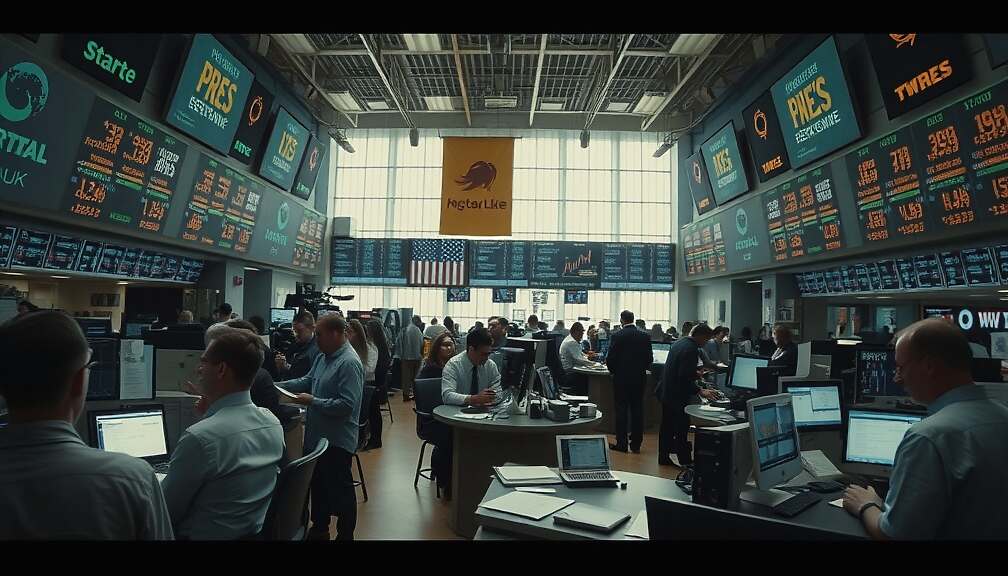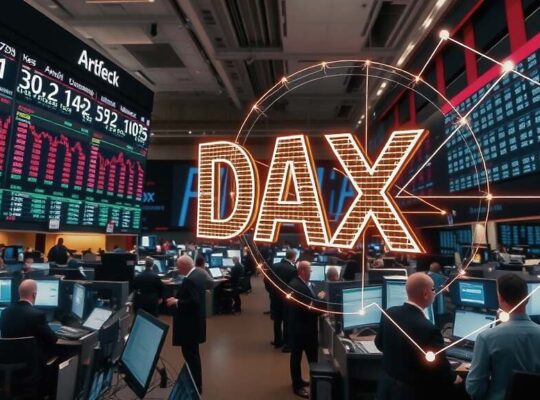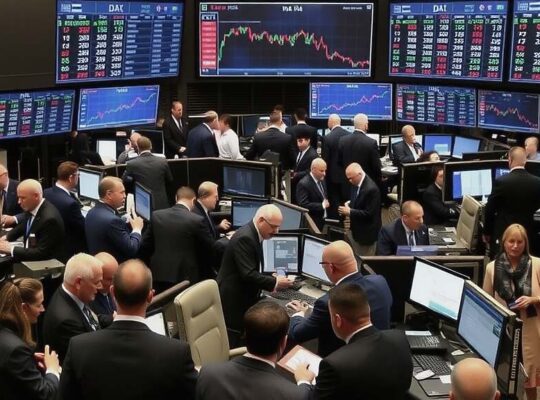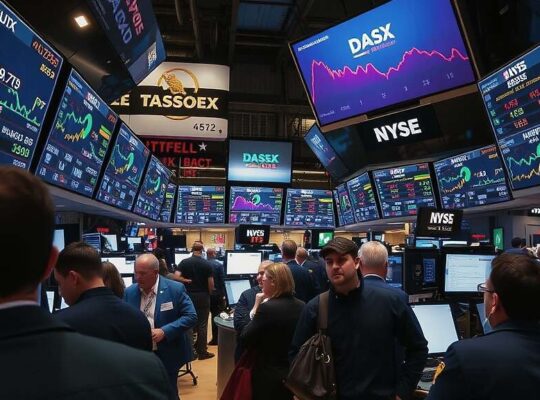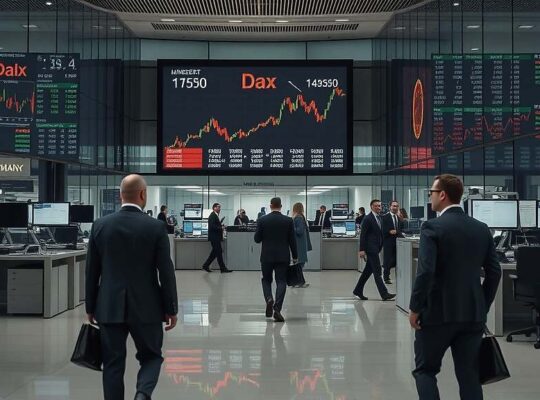Market jitters gripped the German stock exchange on Friday afternoon, sending the benchmark DAX index to its lowest point in nearly two months. By midday, the index had fallen to approximately 23,485 points, marking a further decline from Thursday’s closing figure. The slide raises questions about the sustainability of recent market enthusiasm, particularly within the burgeoning artificial intelligence sector.
The sell-off was broad-based, with significant losses reported across various sectors. Scout24 and Zalando, a surprising reversal for the latter which had enjoyed a strong performance the previous day, were particularly hard hit, shedding over four percent of their value. Even established, blue-chip companies – pillars of German industry like Bayer and Siemens – weren’t spared, losing over two percent each.
Analysts attribute the sudden downturn to growing anxieties that the frenzied buying spree of recent weeks, fueled by speculative investment in AI-related ventures, may have been overextended. The cautionary tale of the overnight losses experienced by US technology stocks has added to investor apprehension, prompting a reassessment of valuations. This suggests a broader correction might be underway, questioning whether the exuberance surrounding AI has been rationally grounded in tangible growth prospects or driven by short-term hype.
The euro experienced a slight uptick against the dollar in Friday afternoon trading, fetching $1.1555, reflecting a partial recovery from recent volatility. However, the underlying fragility of the market remains evident and observers are keenly scrutinizing whether the latest dip will trigger a more prolonged period of instability and necessitate a recalibration of investment strategies across the European markets. The events raise further debate on the risks associated with overly concentrated investments in technologically driven sectors and the broader question of regulatory oversight to prevent speculative bubbles.


